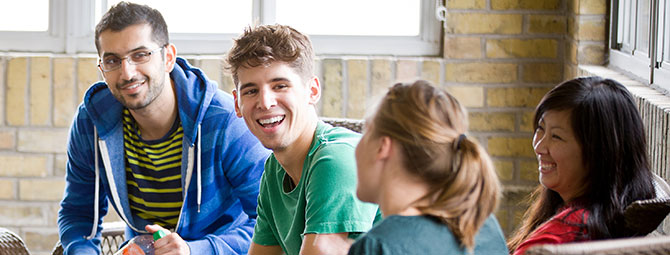Workshops
The C.A.R.E. workshops are vital to the university's journey to become a fully inclusive, multicultural, anti-racist institution. The workshop experience is comprehensive and carefully designed to include hands-on activities and interactive small and large group discussions. Overwhelmingly, students, faculty, and community participants tell us the workshops are relevant, engaging, informative, and eye-opening.
CARE Workshops 2004 to 2024: Twenty Years of Yearning toward Racial Justice

Founded in 2004, the organizers of CARE reflect on the twenty-year mission of the CARE initiative to “support the campus community toward becoming a diverse, inclusive, equitable, and antiracist institution.” In 2024, CARE will offer Antiracism Wellness Checks to listen to the St. Cloud State University and St. Cloud community and ask three questions about CARE’s mission to uplift racial justice:
- Where have you seen it?
- Where is it lacking?
- How can we grow it?
From these listening sessions, CARE will publish an executive summary of the results, use the feedback to tailor its ongoing workshops and antiracist focus, and generate healing artifacts by which racial justice can be engaged in forms other than words. CARE will develop a comprehensive community antiracist education approach, honoring its historic legacy and ensuring its ongoing efficacy.
Spring 2024 Sessions
- Tuesday, March 26, 2024, from 1:30 to 4:30 p.m., Cascade Room, Atwood Memorial Center.
- Tuesday, April 9, 2024, from 5:30 to 8:30 p.m. in the St. Cloud Community.
- Thursday, April 25, 2024, from 1:30 to 4:30 p.m., Alumni Conference Room, Atwood Memorial Center.
Workshop Stones
The motif of the workshops is organized around stones of memorial and remembrance, the weight calling us to action. When completed as a set, the workshops form stepping stones from individual stones to islands of collaboration. Participants will pick up these stones, each with a different weight on these themes: acknowledge racism, analyze racism, and act with antiracist outcomes and methods.
Workshop Stones: Acknowledge, Analyze, and Act to Dismantle Structural Racism
This workshop places weight on acknowledging racism. Students, employees, and community members will unpack the definition of racism, differentiate between interpersonal versus structural racism, analyze power and privilege, and form an action plan to dismantle racism in one of five areas: 1) housing, 2) education, 3) law, 4) healthcare, 5) land/environment.
Upcoming Sessions
- Wednesday, November 29, from 9:30 to 11:30 a.m., Glacier Conference Room, Atwood Memorial Center. Maximum 20 participants.
- Tuesday, December 5, from 1:30 to 3:30 pm, Alumni Conference Room, Atwood Memorial Center. Maximum 20 participants.
Register for the workshop at HuskiesConnect.
This workshop places weight on analyzing racism. Students, employees, and community members will analyze structural racism in their lives. Participants will generate an analysis of their racial story and who they can join to dismantle racist structures that affect them, their community, and their regions.
Upcoming Sessions
Workshops coming Spring 2024.
This workshop places weight on acting with antiracist outcomes and methods. Students, employees, and community members will generate art that inspires action in one of the five areas identified in Stone One. Participants will create an artifact that expresses their racial story and will identify other agents with whom they can collaborate. Participants will gain an intersectional understanding of how an antiracist framework magnifies other areas of oppression such as age, size, (dis)ability, gender, sexuality, religion, class, and new emerging forces. Participants will learn to attune to the depth of interracial and cross-racial structures that thicken and deepen antiracist outcomes and methods.
Upcoming Sessions
Workshops coming Fall 2024.
An advanced workshop for supervisors and graduate students that explores race, culture, and identity. It dissects oppressive practices and offers practical ideas that will guide everyday work.
Anti-Racist Pedagogy Across the Curriculum: (ARPAC)
The Minnesota State award-winning ARPAC workshop for faculty and teaching graduate students provides intensive training about incorporating anti-racist pedagogy into courses across disciplines.
ARPAC fosters a community of educators committed to anti-racist praxis, which supports faculty in teaching. Learning outcomes include examining theory, structure, and the practice of racism and power relations embedded in history and academic disciplines; raising self-awareness of social locations and knowledge production; empowering students by validating and acknowledging everyday experiences; fostering critical thinking and equipping students with anti-racist language and discussion skills; creating a sense of community in the classroom; and developing skills for anti-racist methodologies in the classroom.